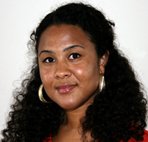- Home
- News & Blogs
- About Us
- What We Do
- Our Communities
- Info Centre
- Press
- Contact
- Archive 2019
- 2015 Elections: 11 new BME MP’s make history
- 70th Anniversary of the Partition of India
- Black Church Manifesto Questionnaire
- Brett Bailey: Exhibit B
- Briefing Paper: Ethnic Minorities in Politics and Public Life
- Civil Rights Leader Ratna Lachman dies
- ELLE Magazine: Young, Gifted, and Black
- External Jobs
- FeaturedVideo
- FeaturedVideo
- FeaturedVideo
- Gary Younge Book Sale
- George Osborne's budget increases racial disadvantage
- Goldsmiths Students' Union External Trustee
- International Commissioners condemn the appalling murder of Tyre Nichols
- Iqbal Wahhab OBE empowers Togo prisoners
- Job Vacancy: Head of Campaigns and Communications
- Media and Public Relations Officer for Jean Lambert MEP (full-time)
- Number 10 statement - race disparity unit
- Pathway to Success 2022
- Please donate £10 or more
- Rashan Charles had no Illegal Drugs
- Serena Williams: Black women should demand equal pay
- Thank you for your donation
- The Colour of Power 2021
- The Power of Poetry
- The UK election voter registration countdown begins now
- Volunteering roles at Community Alliance Lewisham (CAL)
It's time to be proud of our black beauty
 Elizabeth Pears writes about Satoshi Kanazawa's controvery provoking 'study' and the concept of beauty.
Elizabeth Pears writes about Satoshi Kanazawa's controvery provoking 'study' and the concept of beauty.
LSE evolutionary psychologist Satoshi Kanazawa's blog asking "why black women are the least attractive of all the races" was not just racism, but racism of the worst kind because he tried to back it up with a bar chart and call it science.
But as angry as I was, nothing he said surprised me. Black women, especially those living in the west, are left with no choice but to look inwards to be appreciated. The images of beauty we are bombarded with bear no resemblance to what we smile at in the mirror. Our confidence is challenged at makeup counters, where there are few foundations to match our skin colour. We're reminded of our position in fitting rooms, thanks to jeans that are cut without enough room for our plump behinds.
Growing up in a predominantly white school, it was my hair, now my trademark feature, the thing that would make me a millionaire if I had a £1 for every time I was complimented on it, that was once my biggest insecurity. I was known as "Frizzy Lizzy". I was often left red-faced and humiliated when exasperated teachers would ask if there was something I could do with "it" for school pictures. By day, I played the role of the mad-haired class clown because that was the part I had been cast in. At night, I cried on my mum's shoulder and asked why I did not look like "everyone" else. The only person I knew with hair like mine was Scary Spice. And doesn't the name say it all?
I shed many bitter tears in my pillow wishing for European hair I am not meant to have, and spent most of my teens with my hair restrained in a severe bun. My mum refused to chemically straighten it and, with the no-nonsense wisdom you come to expect from a West Indian mother, she told me the quickest route to happiness was to accept myself the way I was, go to bed and stop my whingeing. I listened.
Vogue Italia's current issue pays homage to the "diversity of black beauty" but has left some black women cold. In one respect, we can reflect on how wonderful it is that black women are being profiled in this way: bold prints, big afros and shining dark skin. But nearly 40 years after Beverly Johnson, the world's first black supermodel, graced the cover of Vogue, why is it that it takes an all-black editorial for black women to be recognised? Wouldn't it be a better tribute to find a place for them throughout the year? That's a common theme of black beauty. It's very rarely just beautiful – it's exotic, a novelty, tokenism or it's non-existent.
The harsh truth is, the mainstream dictates what beauty is: the fashion houses (all European) that favour size-zero models; the L'Oreal hair adverts where "you're worth it" only if you hair is 20 inches long and poker straight; the Disney films where Snow White and Cinderella are the heroines.
Recently, out drinking with a group of friends, all white, a guy came up to me and asked if he could touch my hair. To the average person, the creep alarm bells may have started ringing, but it happens to me quite a lot (the "novelty" factor). After running his fingers through my curls, or trying to, he turned to me and said: "I just love weird things". Whether it was a poor choice of words or perhaps he was just an arse (it's hard to tell because the two often go hand in hand) but it felt like a slap in the face. Weird? I couldn't believe I was back there again. Turning to my friends for reassurance, what I actually found was uncontrollable laughter. With horror, I realised, they actually agreed. Your hair is kind of crazy, one giggled.
It was then I realised you can't change what the Satoshi Kanazawas of the world think. You can only change how you think of yourself. The quicker black women stop looking to the west for validation, the more beautiful we will feel.
Elizabeth Pears
Elizabeth Pears is a freelance news and feature writer. Her work regularly appears in The Voice - Britain's only black newspaper. She also contributes to the Power List, an annual magazine profiling the most influential black people in Britain. Follow her on Twitter.
This article first appeared on the Guardian website, reprinted her with permission of from the author.
